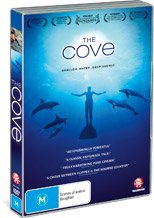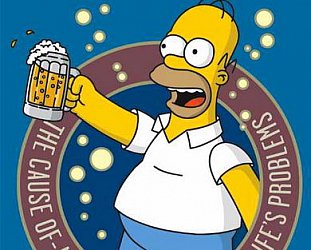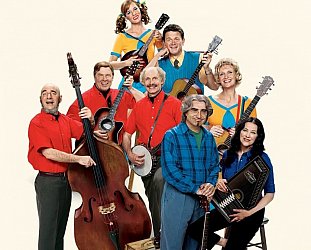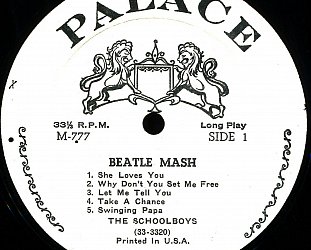Graham Reid | | 2 min read

At the time of this writing Japan's fishing industry is in the news for all the wrong reasons: The annual whale kill is down drastically because of efforts by Sea Shepherd to stop Japan's kill in Southern Ocean; New Zealand activist Peter Bethune is a Tokyo prison for boarding the whaling ship Shonan Maru 2 and attempting to present the captain with a bill after his vessel Ady Gil was in a collision with the whaler; and New Zealand is working to soften the widely held anti-whaling position by negotiating a compromise at the International Whaling Commission -- at a time when other Pacific nations are imposing bans on whaling within their waters.
Japan's fishing practices are under a spotlight -- and they don't come out well in this multi-award winning 2009 doco The Cove which unfurls like a thriller-cum-guerilla journalism investigation into the dolphin industry in the small town of Taiji, and their slaughter in a small cove.
Every year, according to this well-reserached and quite moving film, 23,000 dolphins and porpoises are slaughtered in Japan and, despite them containing menacingly high levels of mercury, they are sold in stores across Japan.
The city council in Taiji was also seriously attempting, as a propaganda measure, to give away dolphin meat in school lunches right across the country, raising the spectre of another social and health disaster along the lines of the notorious Minamata scandal.
What makes this particular documentary so compelling is the character at the centre of protest and direct action against the secret massacre of dolphins in Taiji: it is Ric O'Barry who, over 40 years ago, was responsible for the capture and training of five dolphins for the popular television series Flipper.
He now feels responsible for the increased trade in dolphins for zoos and places like Sea World, which Taiji meets by herding dolphins into a bay then picking off the best ones ("they are looking for Flipper," says O'Barry) to sell for around $US150,000 each.
It is also the fate of those not chosen -- herded around the corner and killed brutally in waters which run red with their blood -- which is what O'Barry is trying to stop.
From night raids in Taiji to place hidden cameras (through their "Oceans 11 team" of Mission Impossible/A Team experts) to restaurants and supermarkets across Japan, into the IWC meetings and with footage of dolphins playing in the surf, this 90 minute film contains aa lot of compelling information to explain why -- in the broader sense -- the Japanese insist on their quota of whales "for research" and the continued slaughter of smaller cetacea like dolphins.
As is also noted, behind the practice is a sense of nationalism and the continuation of a tradition. Yet if this is a tradition, Japanese in the big cites don't know of it and many are horrified when they learn of the slaughters. Or that dolphin meat is in their local supermarket under another name.
The Cove also re-enforces the notion that not everything in a culture, whether it be grounded in a tradition or not, is of value. Some practices are simply barbaric.
The Cove is not an easy to film to watch in places -- it wouldn't play well in Japan you can guess -- and if you have ever been to a Sea World you might feel uncomfortably complicit.
But there is no denying that this is an important film on more levels than just preventing the annual slaughter of dolphins in a small cove.
It is commonly observed that the measure of a society is how it treats its criminals. An equal measure might be how it treats animal life.







post a comment